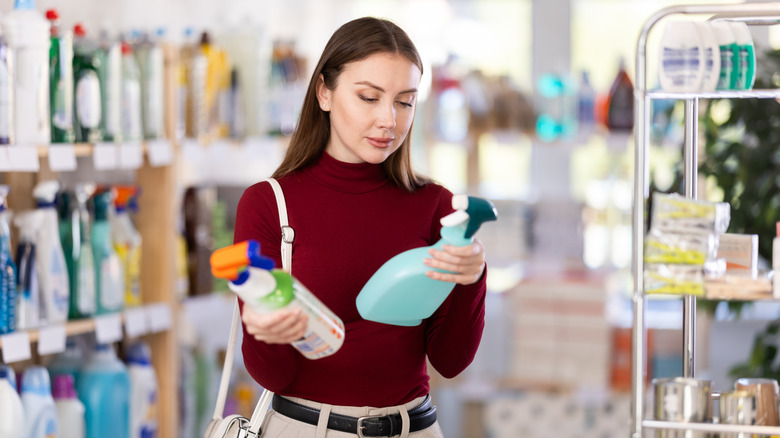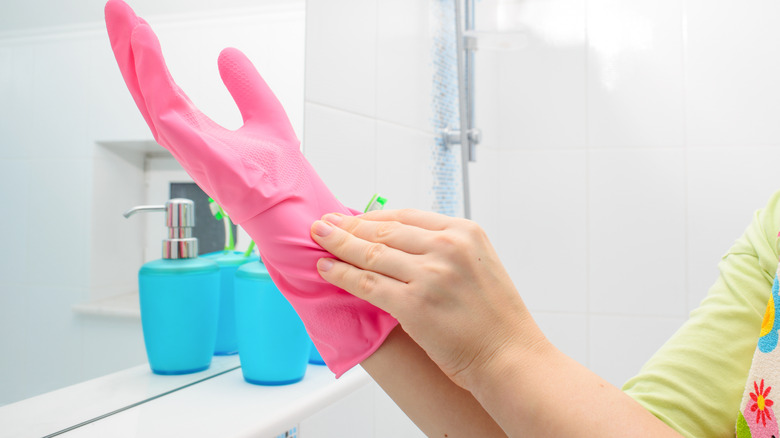Don't Use Hydrogen Peroxide To Clean Your Bathroom Without Doing This First
As many people are shifting from commercial cleaners to products they already have on hand, hydrogen peroxide is among the many ingredients used as "green" cleaners. It also has several possible uses in your bathroom. Before getting started, it's always a good idea to assess whether "green" cleaning products are safe to use in your home. While drugstore-grade hydrogen peroxide is generally recognized as safe when used on its own, it's still important to wear gloves before you use this product.
Traditionally, hydrogen peroxide was used to help treat minor skin injuries. Now, the product is also considered both a whitening and sanitizing agent that you can use as an alternative to harsh bleach products for household cleaning purposes. This common medicine cabinet product may be used for removing stains and mold, as well as for killing germs. There are in fact numerous ways to use hydrogen peroxide in your bathroom to get an effective clean without all the harmful fumes of either bleach or ammonia. Nevertheless, hydrogen peroxide can still pose some health risks and cause skin irritation if you don't take the necessary precautions before using it to clean your bathroom and any other area of your home.
Never use hydrogen peroxide without wearing gloves
Despite its widespread use as a cleaning agent, many people might use hydrogen peroxide without protecting their skin beforehand. Skin irritation is the most common side effect of using this product, and you might experience rashes, itchiness, and skin tone changes after direct exposure to your hands. This is where disposable gloves can come in handy. Even if you have a typical drugstore concentration of 3%, it's simply not worth taking the risk of handling hydrogen peroxide without wearing gloves. As a rule of thumb, higher concentrations of hydrogen peroxide often used in industrial settings are more likely to cause severe chemical burns.
Aside from topical side effects, there are other risk factors associated with hydrogen peroxide you'll want to consider before using it to clean your bathroom. For example, some people may experience irritation to their lungs, throat, and nose after inhaling hydrogen peroxide fumes. Keep your bathroom ventilated by opening any available windows or turning on the exhaust fan during use. You may even want to wear a mask to help reduce the risks of hydrogen peroxide inhalation. Since this bleaching agent can also cause eye irritation, consider protective eye gear as an additional precaution. You'll also want to think twice before combining bleach with this popular cleaning agent. These two products can create a dangerous reaction called peracetic acid, which is considered corrosive to your skin, lungs, and eyes.

